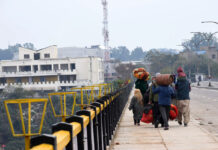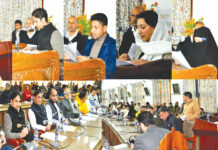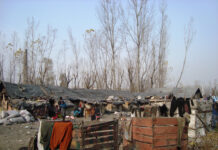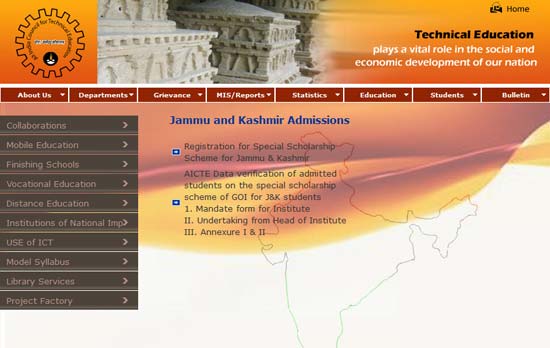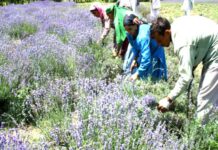Around half of the cherry crop in Kashmir was lost to the unsavory weather in the spring. However a rise in the prices brought growers some respite. Nisar Ahmad Khan reports
Kashmir’s cherry production witnessed a decline this year due to hail, heavy rains and huge temperature variations in spring. Cherry exports to mainland markets have also gone down drastically.
Riyaz Ahmad Rather, a fruit and vegetable commission and forwarding agent, said, “This year’s production is less than 50 per cent of that of the previous year.”
The widening gap between demand and supply has escalated the prices of the fruit.
According to the state’s Horticulture Planning and Marketing Corporation, this year the rate for one kilogram cherry box of Mishri variety ranged from Rs 90 to 190 and one kg of Makhmali variety fetched between Rs 85 and 140. In 2010 the average rate for both the verities was Rs 100 to110.
The growers, however, are making losses even with the comparatively higher prices of cherry. “The losses (of cherry producers) could not be compensated even if the current rates of cherry are doubled,” Rather said.
The rise in prices may be saving the growers to some extent but is playing hard on the local food processing companies. Abdul Wahid, who runs a fruit processing and marketing unit, says, “I have already invested huge amount of money but due to hike in prices (of cherry), I am unable to buy at such rate.”
Most of the local cherry trade is transacted at the Parimpoora Wholesale Vegetable Market, where the rates are fixed by bidding.
The local fruit processing companies want the department of horticulture to intervene and save them from losses.
“This year the growers have been directly approached by the dealers outside the state, who have kept their agents here. The agents in collusion with local dealers, who have monopoly in the Parimpora market fix rates which benefit them,” Wahid said.
 But why should a grower sell his produce at a discount, even if it is to the local industry, said a commission and forwarding agent at the wholesale market, not wishing to be named.
But why should a grower sell his produce at a discount, even if it is to the local industry, said a commission and forwarding agent at the wholesale market, not wishing to be named.
“How could a fruit grower sell his produce at low rates to the local processing unit holders, if he is getting a good amount from someone?” said, Riyaz Ahmad.
Mishri is the most sought after variety of cherry in Indian markets followed by Awwal Number, Makhmali and Cherry Double. Most of the cherry produce is consumed in New Delhi, which accounts for 70 per cent of Kashmir’s cherry exports. Mumbai is the second biggest market for Kashmiri cherries and there too demand has been always good. Apart from these Kashmir cherry is also sold in Hyderabad, Bangalore, Kolkata and Amritsar.
Deputy Director Planning Central, Horticulture Planning and Marketing, A R Wazir, says that so far out of the 741 metric tonnes of cherries harvested this year, 237 metric tonnes have been consumed locally and 504 metric tons have been sent to different cities in India.
“We are sending our fruit to almost all the big cities through air, train and road transport. So far we have fixed the rate for air transport from rupees 27 to 33 per kg to different locations across India. Also the train transport charges from Jammu to Mumbai and other cities range between rupees 400 to 450 per quintal,” he said.
Kashmir is mostly grown in Tangmarg, Harwan, Gandrbal and Shopian areas in Kashmir. Wazir says a production of 11429 metric tons of cherry was recorded in 2010 as 3437 hectares of land was under cherry production.
Fruits like cherry have small shelf life and after harvest are to be pre-cooled, stored, packed and carried under refrigeration to the terminal market. But only a small amount of the fruit is transported under controlled conditions, may a times leading to its spoilage.
The fruit growers say that every year they have to suffer losses for lack of cold storage.
“A portion of our production gets rotten because of the hot climate. Many times we have appealed the government to set up cold storage facility, but till now nothing substantial has been done in this regard.” Bashir Ahmad a fruit grower from Harwan said.
The government says that they are in the process of setting up cold storages. “We have finalized the proposals for setting up cold storage at important locations including, Parimpora, Anantnag, Sopore, Handawara, Narwal and Akhnoor,” deputy director Wazir said.
A crop insurance scheme could have proved a hedge for the growers against the vagaries of weather or other factors that lead to spoiling of the produce.
Deputy director of horticulture department, Bipan Pandita says that government is seriously thinking about putting a crop insurance mechanism in place. “After consultations with experts and banking sector some better scheme is expected which will be in favor of the fruit growers,” he said.


